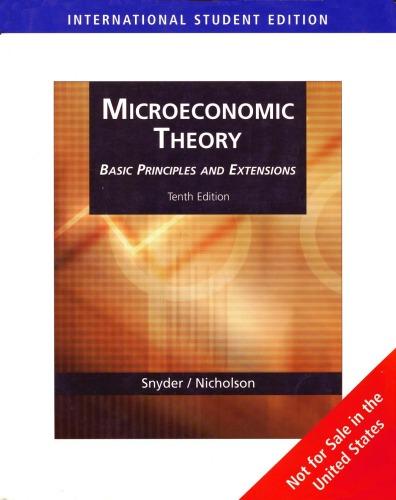8.10 Rotten Kid Theorem In A Treatise on the Family (Cambridge, MA: Harvard University Press, 1981), Nobel
Question:
8.10 Rotten Kid Theorem In A Treatise on the Family (Cambridge, MA: Harvard University Press, 1981), Nobel laureate Gary Becker proposes his famous Rotten Kid Theorem as a sequential game between the potentially rotten child (player 1) and the child's parent (player 2). The child moves first, choosing an action r that affects his own income (r) [(r)>0] and the income of the parent (r) [(r) < 0]. Later, the parent moves, leaving a monetary bequest L to the child. The child cares only for his own utility, U(+L), but the parent maximizes U(TL)+a U, where a > 0 reflects the parent's altruism toward the child. Prove that, in a subgame-perfect equilibrium, the child will opt for the value of r that maximizes Y even though he has no altruistic intentions. Hint: Apply backward induction to the parent's problem first, which will give a first-order condition that implicitly determines L*; although an explicit solution for L cannot be found, the derivative of L* with respect to required in the child's first- stage optimization problem-can be found using the implicit function rule.
Step by Step Answer:

Microeconomic Theory Basic Principles And Extensions
ISBN: 9780324585377
10th Edition
Authors: Walter Nicholson, Christopher M. Snyder






